Traditional oyster sauce is a flavorful condiment crafted from oyster extracts, soy sauce, sugar, and seasonings. It's a staple in Asian cuisine, elevating the taste of stir-fries and marinades, and is used as a dipping sauce. This rich and savory sauce lends a luscious umami note and a glossy sheen to various dishes, making it an essential component in creating the depth of flavors in many Asian dishes.
But what if you need an oyster sauce substitute due to dietary restrictions, allergies, or simply because you ran out of it? Fear not. In this post, we'll share the best oyster sauce substitutes, each with its unique characteristics and the situations where they shine.
What is Oyster Sauce?
Oyster sauce is a thick, dark brown condiment made by simmering oysters in water until the oyster juices caramelize into a flavorful, umami-rich sauce. It has a savory, slightly sweet, and deep earthy taste with a hint of the sea without being overwhelmingly fishy. Oyster sauce is commonly used in Asian cuisine, particularly in Chinese cooking, to enhance the flavor of stir-fries, marinades, and sauces, adding a subtle depth and richness to dishes.
The 13 Best Oyster Sauce Substitutes
Vegetarian Oyster Sauce
Most oyster sauces contain oyster extract, so they are not vegetarian-friendly. Vegetarian oyster sauce is a standout choice among oyster sauce alternatives for those who follow a vegetarian or vegan diet. Crafted from mushrooms and soy sauce, this alternative beautifully captures the essence of umami-rich oyster sauce without animal-derived ingredients. Its versatile nature stems from its earthy and savory undertones, making it an adaptable enhancement for various culinary creations.
Replace oyster sauce with an equal quantity of vegetarian oyster sauce as indicated in your recipe, and adjust according to your taste preferences if necessary. Since vegetarian oyster sauce is often made from mushrooms, it's ideal for dishes whose primary role is to add a savory, earthy undertone without the seafood flavor.
Hoisin Sauce

Hoisin Sauce is an excellent substitute for oyster sauce, adding a unique and rich flavor to your dishes. With its sweet, salty, and savory profile, Hoisin Sauce complements various recipes, from stir-fries to marinades and glazes. When substituting Hoisin Sauce for oyster sauce, use it in a 1:1 ratio, adjusting to taste as needed.
The sweet undertones of Hoisin Sauce, derived from ingredients like soybeans, garlic, and sugar, can enhance the complexity of your dishes. It's particularly versatile in Asian cuisine, often used in classics like Peking duck and spring rolls. Hoisin Sauce provides a delectable alternative that adds depth and character to your cooking, making it a valuable choice in your kitchen pantry.
Soy Sauce

Soy sauce is a versatile and readily available substitute for oyster sauce in various recipes. Its distinct umami-rich flavor and salty profile suit those seeking an alternative. When substituting soy sauce for oyster sauce, a 1:1 ratio is commonly used, but you can adjust the quantity to match your taste preferences.
Soy sauce's deep, savory notes, derived from fermented soybeans and wheat, can enhance the taste of your dishes. Its adaptability is used in stir-fry dishes, marinades, and dipping sauces, establishing it as a fundamental ingredient in both Asian and fusion culinary traditions. Soy sauce offers a budget-friendly and convenient replacement for oyster sauce, ensuring your meals remain flavorful and satisfying.
Mushroom Sauce

With its rich and earthy flavors, mushroom sauce is an excellent substitute for oyster sauce, especially for those seeking a vegetarian or vegan alternative. Often made from shiitake mushrooms or a mushroom blend, it provides a similar umami punch and depth of flavor to your dishes. You can do so in a 1:1 ratio when replacing oyster sauce with mushroom sauce, making it a straightforward transition.
Mushroom sauce's versatility makes it a valuable addition to various recipes. It pairs well with braises, marinades, fried rice, and stir-fried vegetable dishes, adding a savory and mushroomy essence to your cooking. It's a great choice for those seeking a different flavor dimension without using seafood-based ingredients.
Fish Sauce
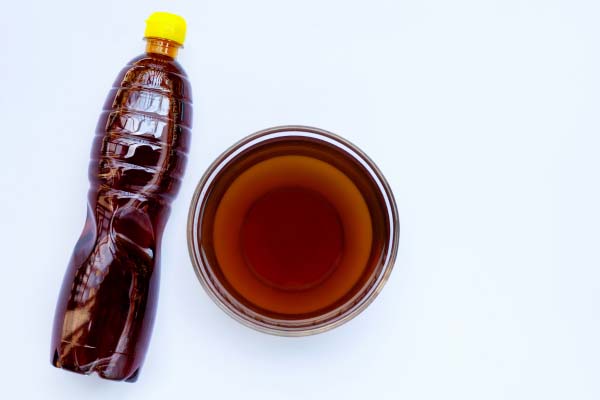
Fish sauce can be an excellent substitute for oyster sauce when looking for that umami kick in your dishes. It provides a salty and savory flavor profile that can mimic the depth of oyster sauce. When replacing oyster sauce with fish sauce, you can use a 1:1 ratio, but remember that fish sauce can be saltier, so taste as you go and adjust accordingly.
Fish sauce is frequently used in Southeast Asian culinary traditions, notably in Thai and Vietnamese recipes. I like to use this substitute in dishes like Thai curries, pad thai, or Vietnamese Pho. However, it must be noted that fish sauce has a more pronounced fishy aroma, so it may not be suitable for all recipes. If you enjoy the taste of seafood and want to add complexity to your dishes, fish sauce can be an excellent oyster sauce alternative.
Soybean Paste
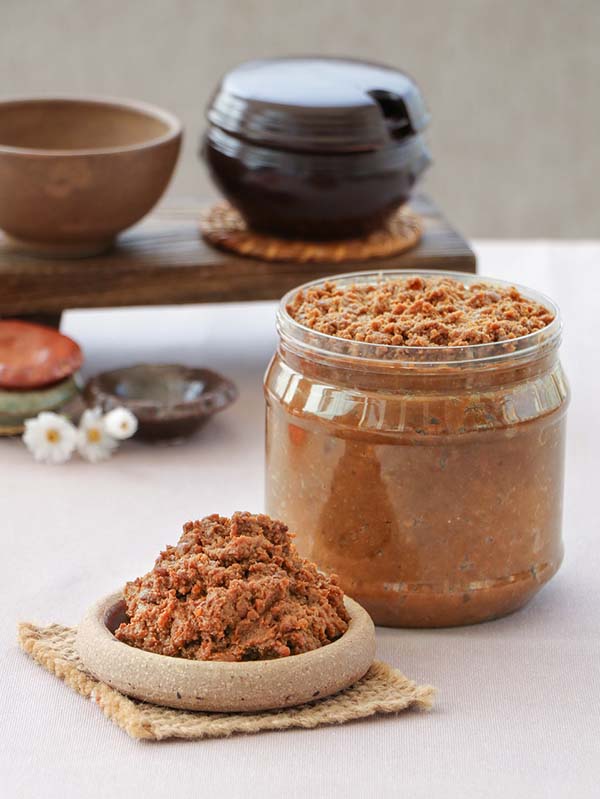
You can substitute oyster sauce with soybean paste. Soybean paste, often called "doenjang" in Korean cuisine, is a versatile and flavorful substitute for oyster sauce. Made from fermented soybeans, soybean paste has a rich and savory taste with a hint of sweetness, making it an excellent choice for an oyster sauce alternative.
You can replace oyster sauce with a 1:1 ratio when using soybean paste as a substitute. However, soybean paste is slightly thicker and may have a stronger umami flavor, so it's advisable to taste and adjust according to your preference.
Soybean paste is commonly used in Korean and other East Asian cuisines for various dishes, including soups, stews, and stir-fries. It is best utilized in braised dishes, stews, and stir-fries, where its savory qualities can shine without the seafood essence. Soybean paste brings a hearty, earthy backbone to recipes like Mapo Tofu, vegetable stir-fries, or Korean stews, enhancing flavors while maintaining a vegetarian profile.
Coconut Aminos
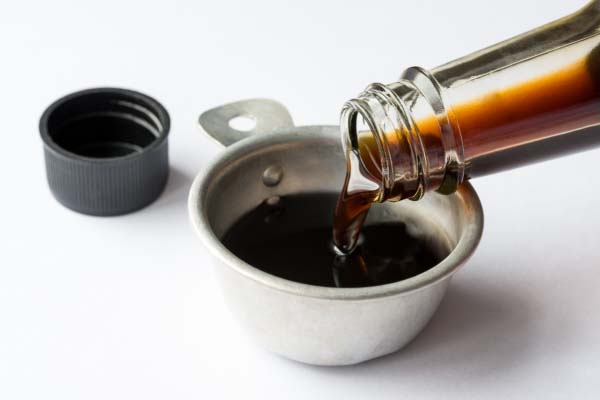
Coconut aminos serve as a versatile substitute for oyster sauce, especially appealing for those with dietary restrictions or preferences, such as veganism, gluten sensitivity, or soy allergies. Its naturally sweet, mildly salty profile brings a unique depth of flavor, making it less intense than oyster sauce. If you never had coconut aminos, it tastes like sweet soy sauce combined.
When substituting, you can generally use it in a 1:1 ratio, adjusting to personal taste. Coconut aminos shine in a variety of dishes, from fried rice and marinades to dressings, enhancing flavors without overwhelming the palate. Their best use is in recipes where their subtle umami and sweet notes can complement other ingredients, providing a nuanced alternative to the boldness of oyster sauce. Thus, coconut aminos cater to a broader range of dietary needs while still delivering a complexity of flavors.
Anchovy Paste
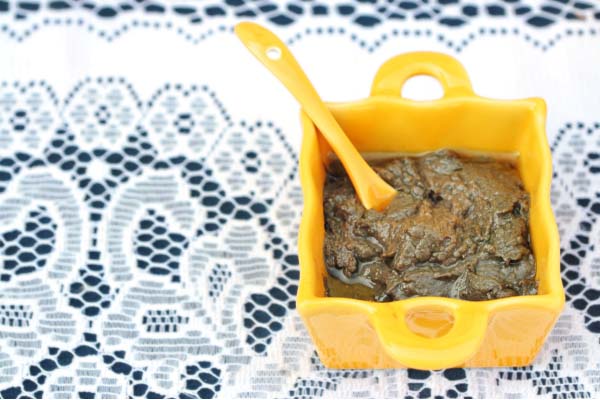
Anchovy paste is a hidden gem among oyster sauce substitutes, known for its ability to infuse dishes with a rich umami flavor. It's a fantastic choice for those seeking an alternative that closely matches the savory depth of oyster sauce. Anchovy paste can be used as a substitute, and it can be diluted with water to achieve a consistency similar to oyster sauce. A common ratio is 1 tablespoon of anchovy paste to 2 tablespoons of water, but you can adjust the dilution to taste.
This substitute is excellent in various savory recipes, such as stir-fries, marinades, and sauces, where oyster sauce's umami profile is essential. It adds a distinct depth of flavor and saltiness, making it a versatile choice for enhancing the taste of your dishes. If you're looking for a substitute that captures the essence of oyster sauce, anchovy paste can be your secret ingredient for elevating the umami quotient in your cooking.
Black Bean Paste/ Sauce
Black bean sauce is an excellent alternative to oyster sauce, offering a unique flavor profile that enhances various Asian-inspired dishes. Crafted from fermented black soybeans, this sauce imparts your dishes a lush, savory, and subtly salty flavor. Unlike oyster sauce, black bean paste can be more garlicky. When opting for black bean sauce as an alternative, it's crucial to consider its flavor intensity. Typically, you'll want to use less black bean sauce than oyster sauce in your recipe, as it can be quite potent.
A typical ratio is one part black bean sauce to two parts oyster sauce, although feel free to modify it according to your taste preferences. Black bean sauce shines in stir-fries, marinades, and braised dishes, infusing them with its signature umami richness. So, when you find yourself out of oyster sauce, reach for black bean sauce to create equally flavorful and satisfying dishes.
Tamari Sauce
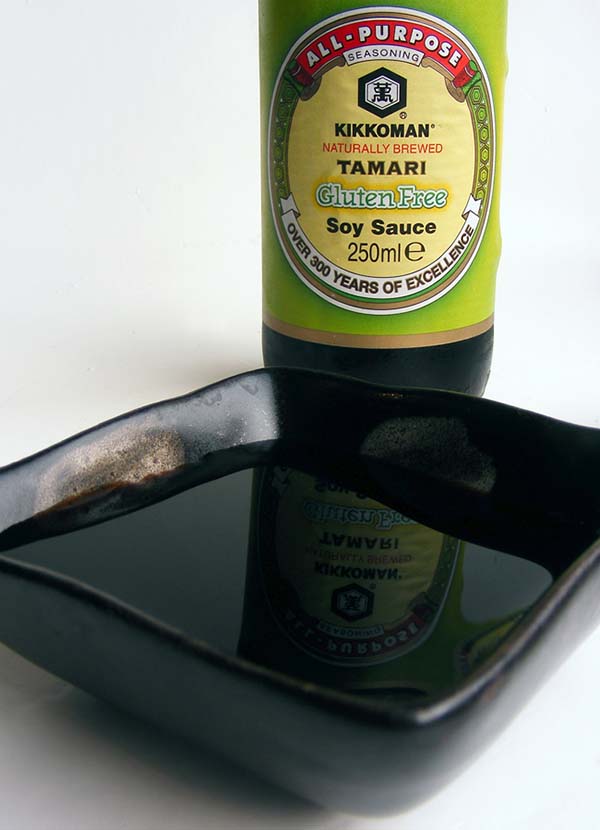
Tamari sauce, a gluten-free soy sauce, is a fantastic oyster sauce substitute for those with dietary restrictions or looking for a unique twist on their dishes. With a deep and savory flavor profile, Tamari sauce can add a rich umami taste to your recipes, similar to oyster sauce. When using Tamari sauce as a substitute, it's important to note that it's saltier than oyster sauce, so you should use it in moderation. If you never had oyster sauce, the flavor is richer and slightly milder than regular soy sauce.
Typically, you can replace oyster sauce with Tamari sauce at a one-to-one ratio, but start with a bit less and adjust to your taste. Tamari sauce works wonderfully in stir-fries, marinades, and dipping sauces, offering a complex and satisfying flavor that pairs well with various ingredients.
Teriyaki Sauce

Teriyaki sauce is a great oyster sauce substitute, particularly when you want to infuse a sweet and savory flair into your dishes. With its unique blend of soy sauce, sugar, and mirin (rice wine), teriyaki sauce offers a delightful balance of flavors that can mimic the umami-rich taste of oyster sauce.
When substituting, use teriyaki sauce in a one-to-one ratio, but adjust according to your taste preference for sweetness. I find that different brands have different sweetness levels, so it's best to try it before using it. Start with a smaller amount and make adjustments based on your taste preferences.
Teriyaki sauce is a versatile choice for marinades, glazes on meat or vegetables, and stir-fries, lending a pleasant depth of flavor to your culinary creations. Its sweet flavors complement meats, vegetables, and even seafood dishes.
Worcestershire Sauce With Soy Sauce
Combining Worcestershire sauce with soy sauce creates a dynamic oyster sauce substitute, capturing a balance of umami, tang, and sweetness. This mixture brings together the best of both worlds: the complex, slightly tangy depth of Worcestershire sauce and the rich, salty essence of soy sauce.
To substitute for oyster sauce, a ratio of 1 part Worcestershire sauce to 2 parts soy sauce can effectively mimic the depth and body of oyster sauce. This blend is particularly effective in marinades, stir-fries, and meat glazes, which can introduce a nuanced flavor profile. It's best used in recipes where a savory depth with a hint of sweetness is desired, enhancing dishes without overpowering them.
Mushroom Broth With Soy Sauce
Combining mushroom broth with soy sauce offers a savory, vegetarian substitute for oyster sauce. This concoction perfectly blends the umami richness of mushrooms with the salty depth of soy sauce, suiting those seeking a vegan or vegetarian alternative without sacrificing flavor.
For best results, mix equal parts of mushroom broth and soy sauce to replace oyster sauce in a 1:1 ratio, adjusting to your preference. This substitute shines in stir-fries, soups, and sauces, adding a rich, earthy depth that complements a wide range of dishes, especially those featuring vegetables or tofu. It's an excellent choice to infuse meals with a robust, complex flavor while adhering to dietary restrictions or preferences.
